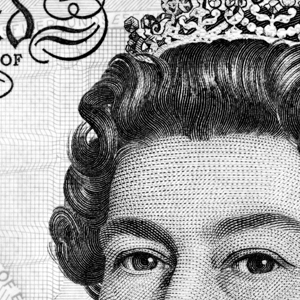Five things we learned about the economy in 2014
1. This is a new kind of recovery When is a recovery not a recovery? This year the UK’s growth has taken off in a way quite unlike the aftermath of previous recessions. Your view of the performance of the economy in...
1. This is a new kind of recovery
When is a recovery not a recovery? This year the UK’s growth has taken off in a way quite unlike the aftermath of previous recessions.
Your view of the performance of the economy in 2014 has depended on which end of the telescope you were looking down. GDP growth is expected to be 3 per cent this year, unemployment has fallen below two million, and CPI inflation is below target. On the other hand, wage growth is still poor, labour productivity still shows little sign of life, and the permanent secretary to the Treasury is reported to be “tearing his hair out” over the weakness of tax revenues.
It all adds up to what in October Andrew Haldane of the Bank of England called a ‘twin peaked’ recovery in which “the UK economy appears to be writhing in both agony and ecstasy”. The two main parties are now fighting over which of these will be at the front of voters’ minds as the general election nears.
Is this is a temporary impairment to the proper functioning of the economy or are we now stuck in a ‘new normal’ which sustains high levels of employment at the expense of productivity, wage growth and conditions? Anybody who doubts the significance of this question need only need consult the OBR’s alternative productivity scenarios buried at the back of its recent Autumn Statement analysis and see what it means for the public finances.
2. There is clear blue water between the parties’ spending plans, but neither are being clear about cuts
In a 2013 review I wrote that the final chapter in Britain’s decade of austerity would be written after May’s election. In 2014 the scale of austerity in the next parliament became clearer.
George Osborne has committed his party to removing the entire deficit within the next parliament and generating a fiscal surplus of around 1 per cent of GDP by its end. On top of the cuts scheduled for 2015–16, this would require around £35bn of fresh tightening in the three years to 2018-19. Even if George Osborne’s putative £12bn of welfare savings come off (and that is by no means guaranteed), then departmental cuts about equal to this parliament will be required again.
In his reflection on working for the Prime Ministers Delivery Unit, Instruction to Deliver, Michael Barber says that “a key legacy of the Blair-Brown legacy already is that no party is willing to countenance the minimalist state option”. The spending plans outlined by the Chancellor this year, if implemented, challenge this assumption. The OBR has said that the plans imply public spending falling as a share of GDP “probably be its lowest level in 80 years”, leading to comparisons between Britain in 2020 and Orwell’s The Road to Wigan Pier.
Labour’s plans imply that cuts in the next parliament would be more manageable, but still a squeeze. Ed Balls’ fiscal rules commit the party to achieving a surplus on the current budget, leaving Labour with around £30bn more than the Osborne plans. This means the party would be able to adopt a broadly flat current budget for public services which is much more manageable than the Coalition trajectory.
At the end of 2014 the Resolution Foundation helpfully put these choices in comparison on the basis of what we know to date:
Source: Resolution Foundation, In the Balance
3. The government has abandoned rebalancing (redux)
In my 2013 review I wrote that George Osborne had failed on his 2010 pledge not to return to “the last decade’s debt-fuelled model of growth”. In 2014 the rebalancing manual was thrown out of a Treasury office window.
Recent GDP data show that household consumption remains the main contributor to economic growth. Nor is George Osborne on course to meet his pledge to double UK exports to £1tn by 2020. In 2014 the UK’s current account deficit was over 5 per cent of GDP – the largest in the UK for as long as anybody cares to remember.
Nor do any plans for rebalancing appear to be designed into the coalition’s future policies. OBR analysis shows that that the movement of the public sector balance into surplus at the end of the decade is mirrored by an increase in the ratio of household debt to income to levels not seen before.
4. Inequality matters
Paradoxically for a period when official measures of inequality have been falling the politics of inequality has ridden up the agenda. In no small part this is because of the work of the French economist Thomas Piketty.
More read about than read, the achievement of Capital in the 21st Century is not just a much-talked about treatise on inequality, but an enormous dataset compiled over 20 years with the assistance of the World Top Incomes project.
The ‘rockstar economist’ has been criticised for quietism – meticulously studying the rise of inequality but having less to say about why it’s a problem. Behind the scenes a different research project in 2014 provided new reasons to object to the Downton Abbey levels of inequality Piketty’s work suggests we’re headed for. Findings published by the OECD in December found that “income inequality has a negative and statistically significant impact on subsequent growth”.
5. Happy holidays…
Economists at the Bank of England have started discussing how to prepare for the next financial crisis.
Rob Tinker is senior researcher at the Fabian Society

